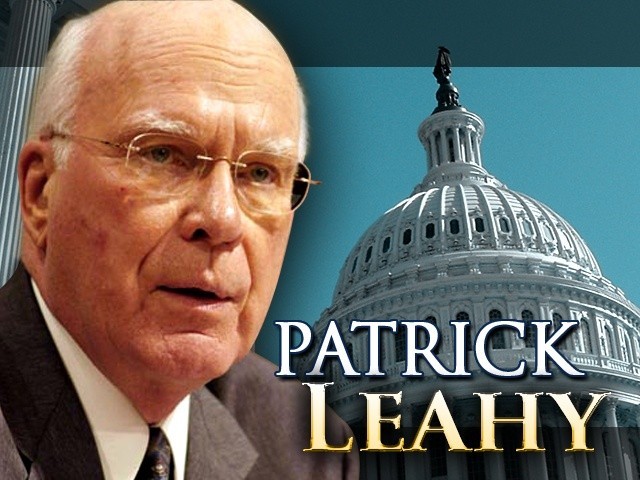His voice rising in anger at moments, Sen. Patrick Leahy, D-Vt., said, "This one from the get-go had no possibility of working."
Rajiv Shah, USAID's top official, said the program, disclosed last week by The Associated Press, was part of the administration's efforts to provide new digital methods to increase the flow of information in and out of Cuba. Shah said the effort operated "discreetly" and was described in congressional budget justifications. But Leahy interrupted Shah to say he had read those budget documents.
"If you could figure out it meant this, you're doing a lot better job than most of us," Leahy said.
Shah said the AP's report had a number of critical inaccuracies, but he was not asked to describe them and did not specify his complaints. He said the agency operates transparently and noted that he was discussing the Cuba program in Tuesday's open congressional hearing.
When Leahy pressed Shah on whether USAID programs always operate in countries with the knowledge and approval of U.S. ambassadors and embassy staff, Shah replied, "That's the aspiration."
Leahy last week called the Cuba Twitter project "dumb, dumb, dumb."
He said USAID employees have been contacting the oversight committee to complain that such secretive programs put them at risk because they drive perceptions that the agency is engaged in intelligence-like activities.
"We're already getting emails from USAID employees all over the world saying, `How could they do this and put us in danger?'" Leahy said.
An Associated Press investigation last week revealed that USAID oversaw the creation of the text message-based service, dubbed ZunZuneo for the sound made by a Cuban hummingbird. USAID and its contractors went to extensive lengths to conceal Washington's ties to the project, according to interviews and documents obtained by the AP.
A key question for the hearings is whether the program endangered its users by concealing that the U.S. government was behind it. The network was publicly launched shortly after the 2009 arrest in Cuba of American contractor Alan Gross. He was imprisoned there after traveling repeatedly on a separate, clandestine USAID mission to expand Cuban Internet access using sensitive technology that only governments use.
Early Tuesday, Gross' lawyer released a statement that his client was going on a hunger strike. The ZunZuneo story was "one of the factors" Gross took into account in connection with his hunger strike, the attorney said.
"Once Alan was arrested, it is shocking that USAID would imperil his safety even further by running a covert operation in Cuba," said the lawyer, Scott Gilbert. "USAID has made one absurdly bad decision after another."
Shah defended the U.S. government's effort to free Gross. He said responsibility for securing the contractor's release rests with the State Department.
Lawmakers will also try to determine whether the ZunZuneo program should have been classified as "covert" under U.S. national security law, which requires covert action to be authorized by the president and described to congressional intelligence committees.
Shah said the ZunZuneo program was not covert, though "parts of it were done discreetly" to protect the people involved. He cited a study by the Government Accountability Office into democracy promotion programs run by USAID and the State Department - including the Cuban Twitter project - found the programs to be consistent with the law.
But the author of the GAO study, David Gootnick, told the AP this week that investigators did not examine the question of whether the programs were covert.
Gootnick said the GAO's report was focused on examining the extent that USAID knew what its contractors were doing. It found that the agency was adequately monitoring the work.
"We did not ask, nor did we report, on the wisdom of conducting such activities," he said.
Leahy, who oversees the Senate Appropriations subcommittee that authorizes spending for USAID and the State Department, said he was not aware of the Cuban Twitter project while it was in operation.
In addition to Leahy's committee, Shah is expected to appear before a Republican-chaired House Appropriations subcommittee, as well as the House and Senate foreign relations committees. Last week, the Republican chairman of a House oversight panel said it would be looking into the project.
In a blog posted Monday, USAID reiterated its position that the program was not covert, challenging the AP's story on several fronts. It said references to the use of "smart mobs" in documents obtained by the AP "had nothing to do with Cuba nor ZunZuneo," though the two are clearly referenced.
The agency also said that several CEO candidates for the network's company were told explicitly that the U.S. government was involved. Documents showed that the creators of ZunZuneo wanted to keep the origins of the service secret from CEO candidates. The AP contacted two of the candidates, both of whom said they'd interviewed for the job with no idea of U.S. involvement.

http://accesswdun.com/article/2014/4/273508
